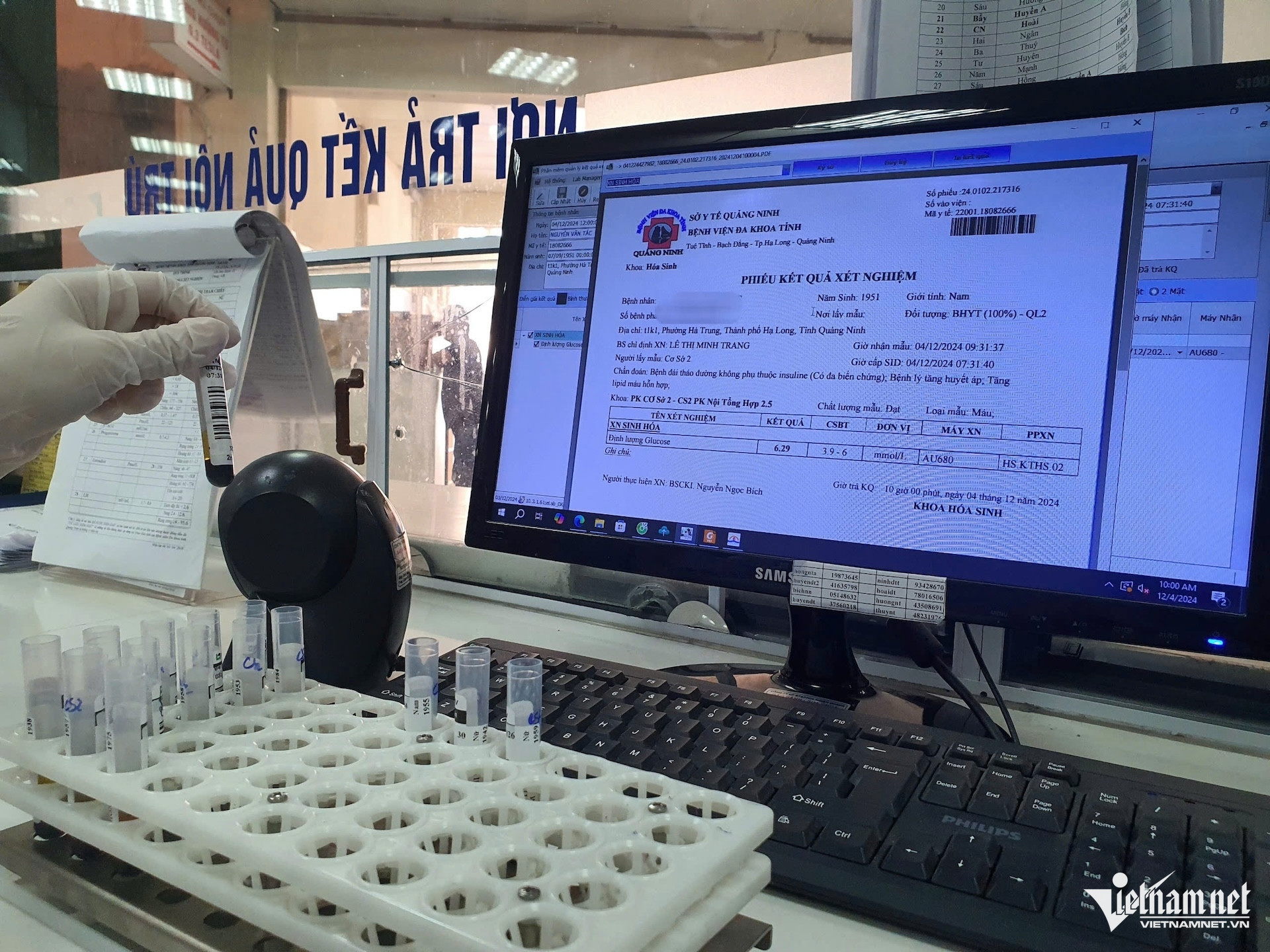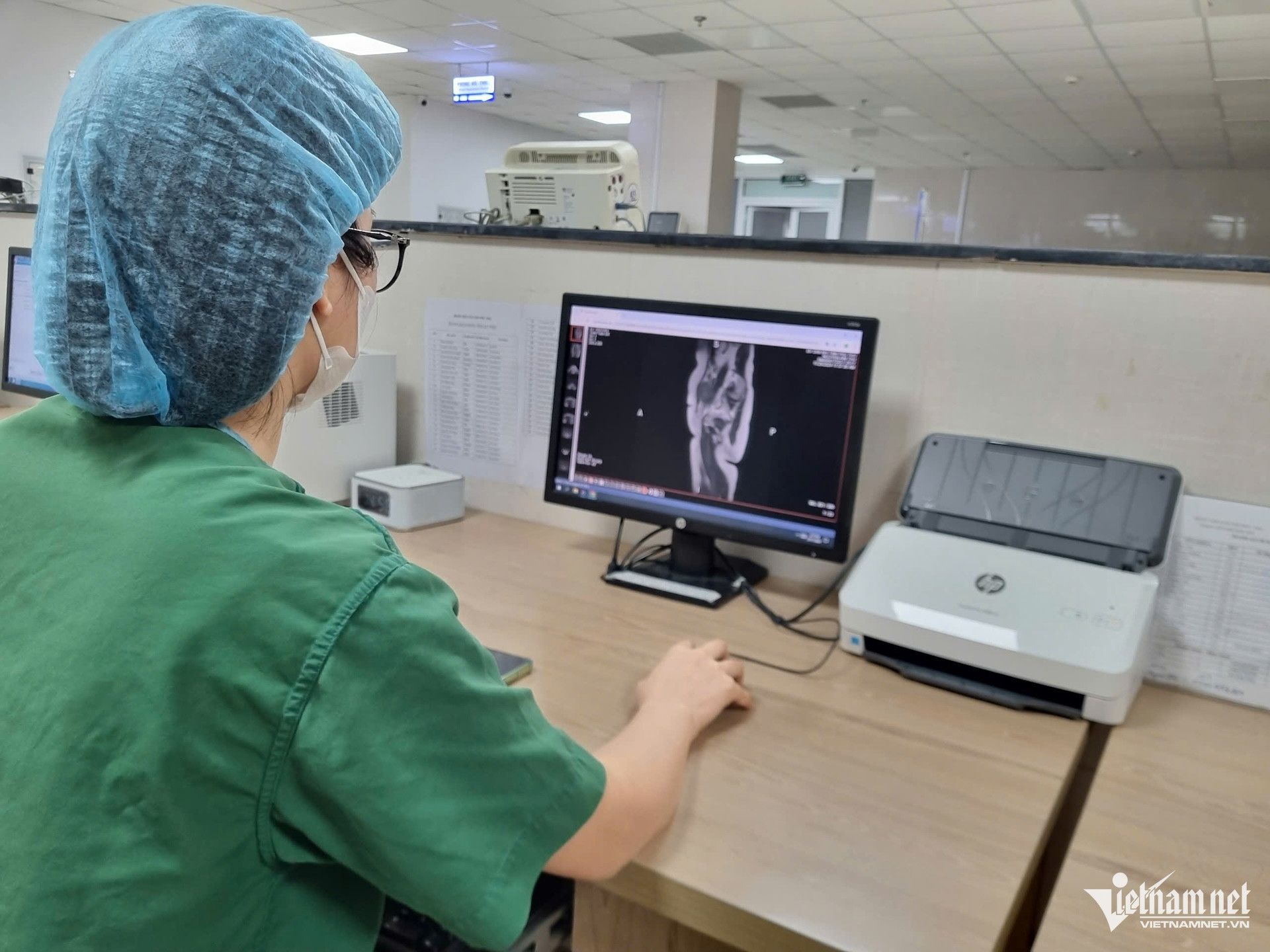
Dr Nguyen Ba Viet, director of Quang Ninh General Hospital, on December 4 reported to the Ministry of Health’s (MOH) working group that his hospital had been carrying out digital transformation and building a smart hospital. It has made heavy investment to build an IT infrastructure at level 6/7 as scaled by MOH.
According to Viet, one or two years ago, patients sometimes had to come to the hospital at 4am to queue for their turn to have medical examination.
In the first months of 2024, just 15 percent of patients made appointments for medical services online, but the figure has risen to 50 percent. Patients can book services via telephone, Zalo, hospital’s website, or apps.
The appointments help ease overloading. Patients just need to come to the hospital 10 minutes earlier than the official time. They just need a QR Code to go to different consultation rooms.
“Nowadays, patients, including my relatives, can have medical examinations at the hospital and don’t have to depend on me or hospital officers for help,” he told VietNamNet on December 4.
Quang Ninh General Hospital is one of the hospitals pioneering EMR (electronic medical records), software to manage medical records and information, HIS-LIS (Hospital Information System - Laboratory Information System), and PACS (Picture Archiving and Communication System) that all keep payments with the health insurance agency and medical examination activities transparent.
Digital transformation of healthcare and elimination of paper records, paper prescriptions, with no need to print plastic films, helps hospitals save billions of dong, reduce plastic and hazardous waste, and protect the hospital environment.
Dr Ngo Quang Chuc, Head of the Department of Diagnostic Imaging, said previously, the hospital had to print about 3,000 films a month, and the films alone cost VND1.5 billion a year. Meanwhile, the treatment of film development liquid was complicated and expensive because films are contaminated with lead. Only the units which could satisfy technical requirements can be assigned to do this. If waste cannot be controlled well, it will cause poisoning and environmental pollution.
With digital transformation, patients are most satisfied to be able to keep track of the medical examination and treatment process without having to wait with anxiety, not knowing when their turn will come and when the results will be available.

A survey found that the total time patients have to spend, from the moment of arriving at the hospital to leaving, has been cut by more than 2 hours. Doctors find it more convenient making diagnoses and treatments. When they go to the examination rooms, they can look up patients’ information using software on the phone instead of flipping through pages of medical records.
Digital transformation eliminates paper medical records and plastic films, which also helps hospitals keep the environment clean and dust-free, while freeing storage space and records which have been stored for decades.
Quang Ninh is one of the localities leading in digitizing health care and applying measures to help make hospitals clean, which prevents the risk of getting contaminated.
In order to keep the environment clean, the Vietnam-Sweden Uong Bi Hospital is applying a model of treating infectious plastic waste with steam sterilization method which has been praised by the leaders of the Department of Medical Environment Management under the Ministry of Health.
In 2023, the total volume of infectious waste generated by the hospital was 45 tons. It is estimated that the hospital can make VND500 million when using the sterilization method to turn infectious waste into normal waste, and selling recycled waste.
The benefit would be higher if reducing plastic waste volume, and thereby, mitigating pollution. The method can completely replace incineration and treatment with chemicals, and doesn’t produce smoke and dust. The plastic waste, after being turned into normal waste, can be used to create other products.
Vo Thu